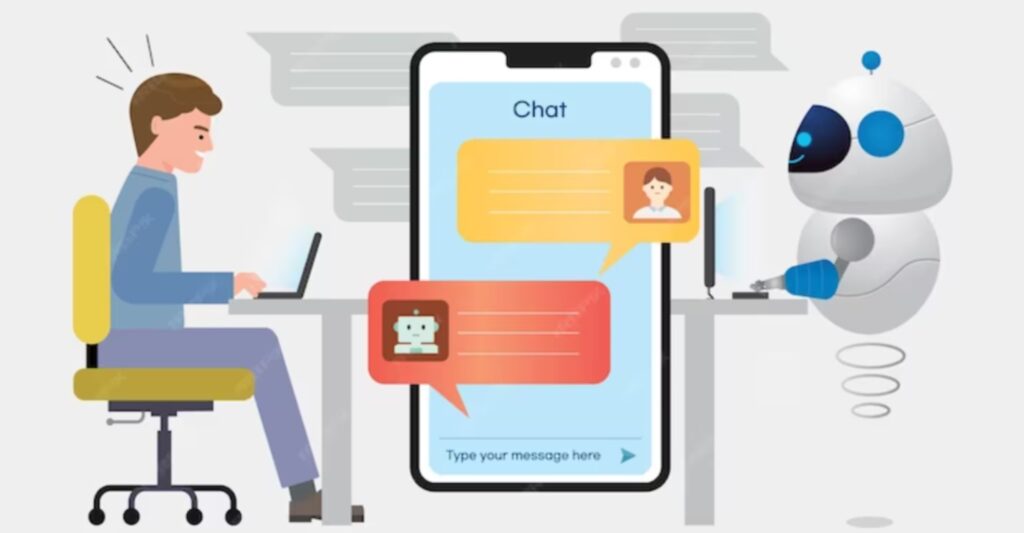Artificial Intelligence Apps: The AI industry is exploring, developing, and making money with new artificial intelligence apps. Leaders in the industry and titans of technology constantly test out new features for their artificial intelligence apps. Retailers and customers have benefited from the industry’s quick evolution since AI apps were introduced to the commercial sphere.
Based on our existing research, companies are now preferring AI apps over market competitors because they give them a competitive advantage. Organizations that support AI apps will probably see far greater success.

Now, let us identify the main advantages and opportunities of AI applications.
Key Features of Artificial Intelligence Apps
Artificial Intelligence has been woven into numerous forms of technology and features.
Machine Learning Integration
AI and machine learning together have influenced Artificial Intelligence apps functioning and user experience. Applications can become more personalized, predictive, and secure. Machine learning integration is one of the most essential AI approaches that prioritizes most artificial intelligence apps. Machine learning technologies have a lot to offer in forecasting and classification. This is why having an AI app is advantageous for so many reasons.
Natural Language Processing Capabilities
This is how human language is interpreted by computer software. The most popular application of natural language processing (NLP) is spam detection, which determines if an email is spam by analyzing its text and subject line. The techniques of NLP used nowadays are based on machine learning. A few NLP tasks include sentiment analysis, speech recognition, and text translation.
Predictive Analytics
The use of statistical and mathematical methods, such as artificial intelligence and machine learning, to predict an exciting object’s value or status is known as predictive analytics. Numerous questions can be answered by predictive analytics. As we know predictive analytics generally requires human inputs to query data, identify trends, and test ideas, machine learning (ML) can be employed in some scenarios.
Personalization and User Adaptation
Artificial intelligence apps employ complex algorithms to determine ample volumes of customer data which is crucial to personalization and user adaption. These algorithms may continuously learn from user behavior and modify their suggestions.
These algorithms build user profiles by considering various data points, including browsing history, purchasing behavior, location, and demographic data. AI analyzes user responses as they engage with the content, identifying patterns and preferences that result in increasingly factual recommendations.
Automation and Efficiency
AI Apps mechanize tedious activities to increase productivity. Focus among employees can be redirected toward more strategic tasks, increasing total output. By assigning repetitive and boring jobs to software, automation frees up human labor for more enjoyable endeavors. This usually leads to higher customer satisfaction, lower error rates, higher compliance, and reduced team conflict.
Advantages of Artificial Intelligence Apps Across Industries
Artificial intelligence apps can revolutionize many industries. The following are some advantages of AI apps across industries:

1. Healthcare:
If we take a look into the healthcare industry, medical records like patient information could be readily analyzed by specialized Artificial Intelligence apps to aid in faster and a lot better diagnosis than a human alone which leads to timely treatment. In a simple explanation, companies can diagnose and treat patients more quickly and precisely than physicians. AI applications create a hypothesis by examining patient data and information from other sources which it then delivers with a confidence grading schema. Other applications of AI are as follows:
Utilizing internet chatbots and virtual health assistants to help patients and healthcare consumers in finding medical information.
- Setting up appointments.
- Understanding the billing process.
- Completing other administrative tasks.
2. Finance:
AI algorithms’ ability to assess creditworthiness by examining a more significant data set produces a more expansive and accurate credit score. Financial institutions can enrich their risk management and analysis capabilities by analyzing complex datasets and identifying actual issues. Artificial intelligence apps can now handle a significant amount of Wall Street trading according to some sources.
3. Education:
AI apps that provide personalized lessons and instant feedback can assist students in language learning. Virtual instructors with AI capabilities can help learners even more by giving guidance and explanations on various subjects. AI can automate the grading system by simply freeing up teachers’ time for other projects.
Students can work at their own pace and adjust to their learnings. AI tutors can help students stay on course by offering extra assistance. Furthermore, technology might change where students learn and how they learn it.
As demonstrated by ChatGPT, Google Bard, and other big language models, educators can operate generative AI to make the classes more interesting than other educational resources. The advent of these tools also forces instructors to reevaluate their policies around assignments, tests, and plagiarism.
4. E-commerce:
Applications with artificial intelligence look at user behavior and make personalized product recommendations to enrich the shopping of buyers. E-commerce websites now utilize chatbots to assist users instantly. It is anticipated that the speedy development of generative AI technologies like ChatGPT will cause revolutions in product design and a disruption of business models.
5. Entertainment:
AI personalizes video game, music, and movie recommendations based on user preferences. Intelligent non-player characters (NPCs), customizable difficulty settings, and lifelike simulations are just a few ways AI enriches gameplay. Newsrooms can lower time, expenses, and complexity by simplifying media workflows using automated journalism.
Newsrooms use artificial intelligence to help with headline writing, and research subjects and automate repetitive jobs like data entry and proofreading. It remains to be seen how journalism can reliably produce material using ChatGPT and other forms of generative AI.
Conclusion – Artificial Intelligence Apps
Artificial intelligence apps identify the best solutions for users’ complicated problems. Every program has an idea that comes from the fact that it helps multiple clients with the same problem. Artificial intelligence apps are a potent technology necessary to provide timely and proactive solutions to complex problems.
Mobile apps are utilized by modern AI programs to help with everyday duties, including customer service, administrative work, and human resources. Expert systems are employed by artificial intelligence businesses and firms to help their clients achieve their goals. They function as platforms for brand marketing and internal and online work automation.
Artificial intelligence is transforming the market, which is also decreasing the demand for human labor. It is developing swiftly, leading to the creation of robots and remotely operated or autonomous vehicles. Artificial intelligence not only affects companies and other platforms, but it also changes the way artists perceive themselves. Additionally, it makes it easier to create clever, imaginative, and flexible programs that greatly enrich user experience.
FAQs – Artificial Intelligence Apps
What distinguishes AI apps from traditional applications?
Artificial Intelligence is programmed to learn how to execute a task, whereas traditional software is programmed to perform a task.
How do AI apps leverage machine learning for better performance?
Large code datasets in AI Apps are used to train machine learning algorithms, which then use those patterns to forecast code quality or spot possible flaws.
Can AI apps understand and respond to natural language?
The ability of AI Apps to comprehend, interpret, and react to human language is made possible by natural language processing.
What role does predictive analytics play in AI app functionality?
An organization might forecast success and make decisions with predictive analytics.
How do AI apps personalize user experiences?
AI may develop individualized experiences by analyzing user behavior, preferences, and historical data through machine learning algorithms.
In which ways do AI apps contribute to healthcare advancements?
1. Recognizing Fraud.
2. Assisting in the making of clinical decisions.
3. Helping with repetitive tasks.
4. Modifying Consultations in Person and Online.
5. Drug Administration and Medical Support.
Are AI apps secure in handling sensitive financial data?
Access controls and authentication procedures should be in place to limit access to sensitive information.
How do AI apps enhance learning experiences in education?
It may create interactive simulations, lessons, and quizzes geared toward particular learning goals
What features make AI apps stand out in the e-commerce industry?
AI’s benefits in eCommerce include fraud detection, intelligent product recommendations, and dynamic pricing.
How is AI reshaping the entertainment landscape through applications?
AI employs machine learning to customize audio and visual content based on past interactions and user choices.
Read Also:
Best Mobile Phones Under 20000
How to Use ChatGPT for Free: A Comprehensive Guide
Exploring the Lunar Frontier: Chandrayaan 3’s Latest Launch and the Race to the Moon
Cyber Attack On Solana Cryptocurrency- 8000+ User Data Breach
iPhone 15 Review: Features, Performance, and More
What is Ransomware? Position of Ransomware in CyberSecurity

